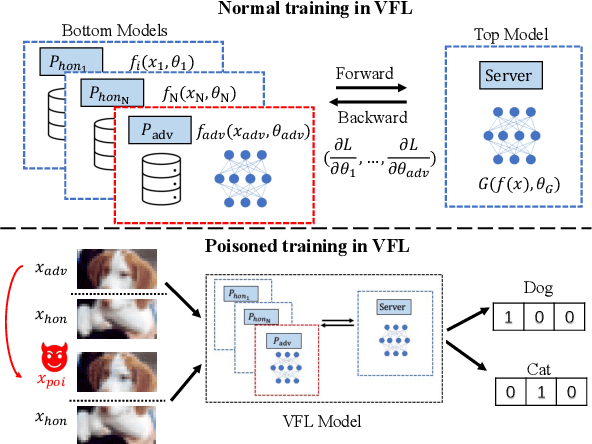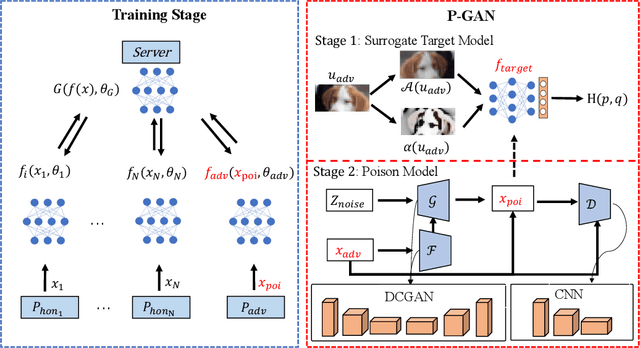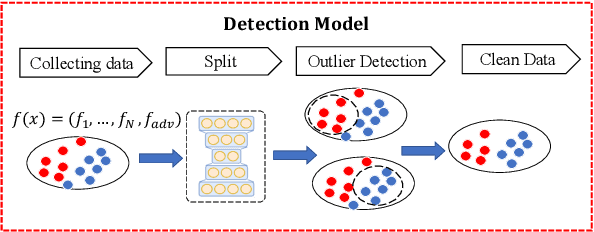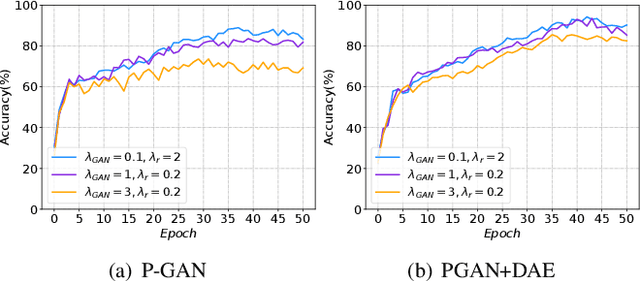A GAN-based data poisoning framework against anomaly detection in vertical federated learning
Paper and Code
Jan 17, 2024



In vertical federated learning (VFL), commercial entities collaboratively train a model while preserving data privacy. However, a malicious participant's poisoning attack may degrade the performance of this collaborative model. The main challenge in achieving the poisoning attack is the absence of access to the server-side top model, leaving the malicious participant without a clear target model. To address this challenge, we introduce an innovative end-to-end poisoning framework P-GAN. Specifically, the malicious participant initially employs semi-supervised learning to train a surrogate target model. Subsequently, this participant employs a GAN-based method to produce adversarial perturbations to degrade the surrogate target model's performance. Finally, the generator is obtained and tailored for VFL poisoning. Besides, we develop an anomaly detection algorithm based on a deep auto-encoder (DAE), offering a robust defense mechanism to VFL scenarios. Through extensive experiments, we evaluate the efficacy of P-GAN and DAE, and further analyze the factors that influence their performance.
 Add to Chrome
Add to Chrome Add to Firefox
Add to Firefox Add to Edge
Add to Edge